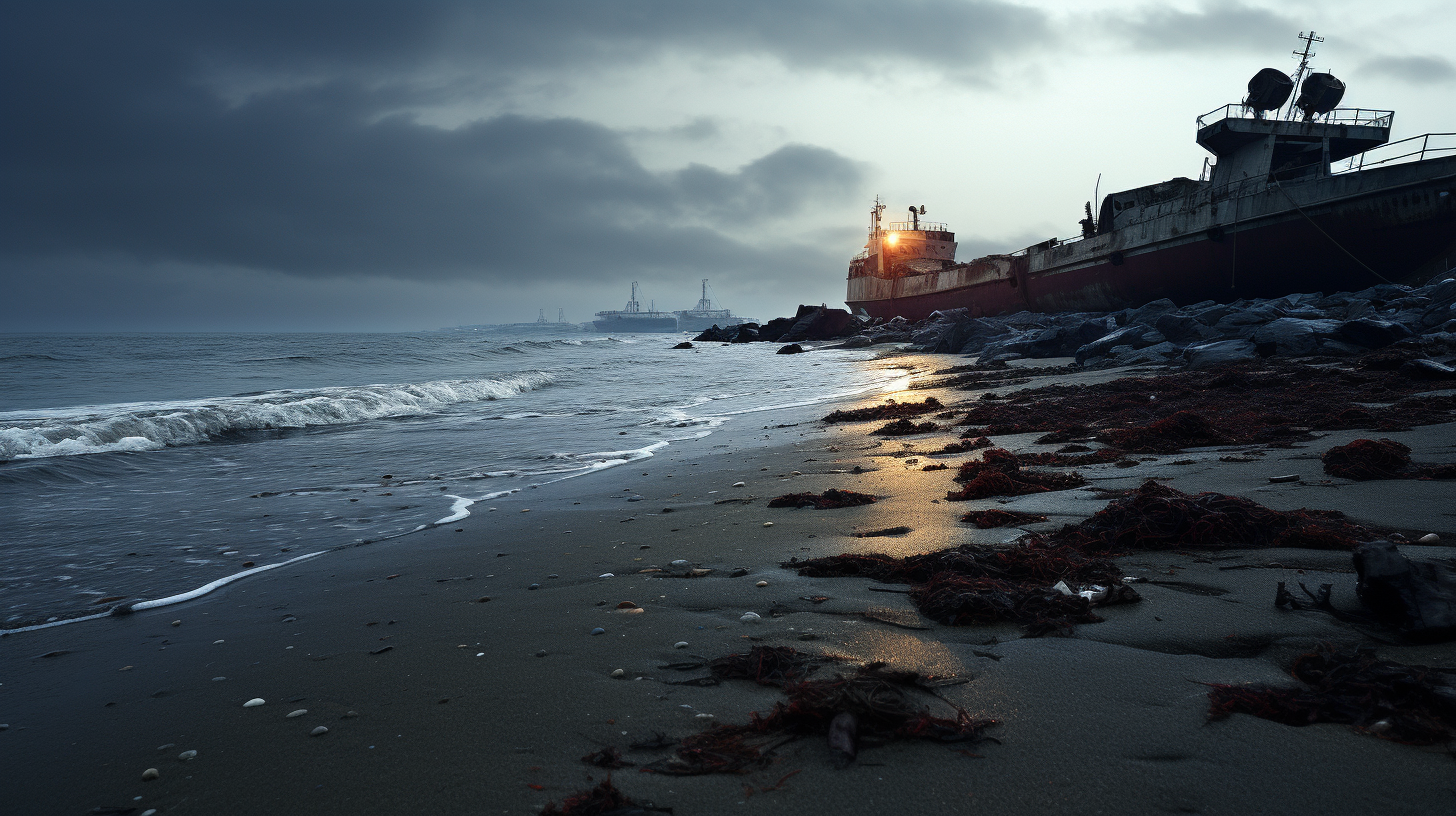In the sterile silence that now blankets what was once the vibrant seabed, the ghostly absence of water whispers tales of a bygone era. For who could have imagined the ocean, in all its vast and tempestuous glory, reduced to barren expanses of cracked soil and forsaken shipwrecks? This is the world we awaken to in ‘Tideless Shores – When the Ocean Retreats‘.
As the sun casts its relentless gaze upon the desiccated ocean floor, one can’t help but reflect upon the cascading failures of a society that stood by as the tide rolled back for the very last time. Not so long ago, the oceans teetered on the brink of ecological collapse, marred by acidification and choked by plastic monstrosities. And yet, the final act of retreat seemed to unfold almost unexpectedly.
The harbinger’s dire predictions, which we once scoured for any lingering hope, have now come to pass. ‘The ocean did not merely die; it retreated in a cautionary exodus,’ one harrowing report details. This exodus, as it unfolds, mutes the uproar of life that once danced beneath the waves, leaving behind an eerie hush. Shores once ringing with the laughter of children now echo with the hollow footsteps of those seeking answers among the ruins.
In this stark reality, the Marine Metamorphosis is the term scientists have begrudgingly coined to denote this phenomenon. It’s not the gradual ebb and flow of tides humanity is accustomed to, but a distressing withdrawal. Ocean currents, once driven by the convulsions of our warming planet, now meander through memory alone. Sea creatures, those not long extinct, continue their existence only in the faded murals of coastal ghost towns.
Amidst the desolation, stories emerge of ecosystems that have tried to adapt, evolve, or most often, simply expire. The tale of the Great Barrier Reef, now a bleached labyrinth of coral bones, serves as an epitaph to the world beneath the waves. Scientists speak not of restoration, but of documentation—recording the demise as a warning to the future that will never know the ocean’s bounty.
But where has all the water gone? The retreating oceans left behind voids, natural depressions now transformed into dystopian dust bowls. Climates, once moderated by the vast expanse of blue, veer into extremes. Landscapes morph, heralding the ascendancy of droughts and dust storms that sweep across continents with inescapable ferocity.
For the residents of coastal cities, now stranded in a paradoxical hinterland, the absence of the sea redefines their existence. Fishing boats lay aground like beached whales, their hulls dissected by the scorching sun. Communities, once interwoven with the rhythm of the tides, find the silence unbearable. The ocean’s retreat has taken more than water; it has stolen identities and livelihoods.
To wander these tideless shores is to walk through an apocalyptic tableau—a chilling testament to the consequences of environmental neglect. The vista stretches on, an endless canvas of forsaken dreams where not even the most resilient of marine life could etch out a realm.
Yet, through this bleakness emerges a paradox—that even as the waters draw away, the marks of humanity’s footprint are more indelible. In the spaces where water once reigned, our discarded legacy emerges with stark clarity. This is the unfiltered mirror of our actions, the rebuke of a planet where our chapter is fast closing.
And so, we find ourselves bearing witness to an ocean that gave abundantly, only to take its leave. A departure not in surrender, but as a final act of self-preservation. The shores may be tideless, but they brim with invaluable lessons—should we choose to listen. The echo of the last wave as it rolled back is a reverberation through time, a somber reminder of what happens when we neglect the natural world that sustains us.
‘This, our tideless inheritance, will define us.’ As the world grapples with the irreversible change of climate disasters, such tales must prompt the urgent reflection needed to comprehend the profound severity of our actions—lest the dystopian portrait we paint becomes indistinguishable from reality.
